Are you curious about the professions that earn the highest respect in India?
Given the dynamic nature of India’s economy, some vocations occasionally rise and fall in importance. It’s important to note that despite market shifts, Indians value various professions highly.
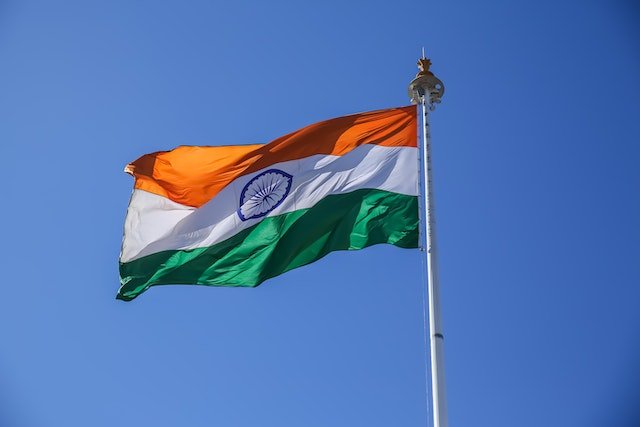
The ten most respected jobs in India or the top 10 respected jobs in India will be examined in this article, along with the factors that contributed to their esteem and the societal purposes they serve.
Healthcare Professionals and Doctors
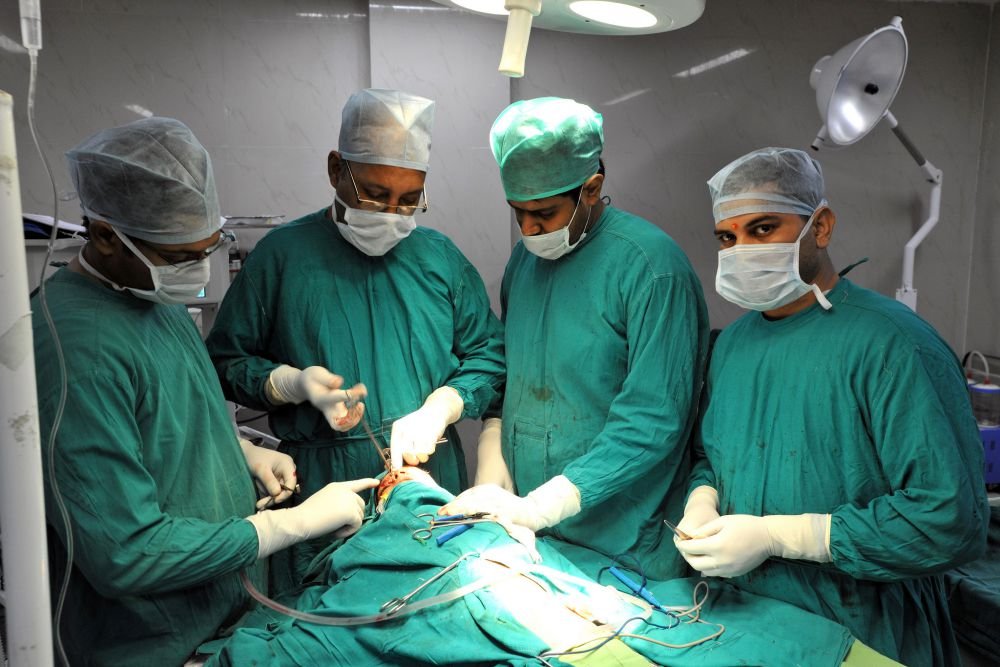
Healthcare professionals in India typically receive great respect from the general public. In fact, since the COVID-19 outbreak, medical professionals have gained a lot of favour from the general populace.
Medical professionals risked their lives throughout the pandemic’s height to treat patients and assist the nation in its battle against the disease.
Doctors and other healthcare professionals are among the most recognised persons in the nation because of their commitment, effort, and altruism.
In India, earning a bachelor’s degree in medicine and a closely related area, such as nursing, pharmacy, and physiotherapy, from a reputable college is often required to work as a doctor or medical professional.
To work as a healthcare practitioner, one must pass a license test after earning a degree. Numerous healthcare professionals continue their education and training in specialised specialities like paediatrics, surgery, or cardiology.
To give patients the most effective treatment possible, staying updated on medical procedures and technological advancements is critical.
| Job Title | Average Annual Salary | Certification Required | Time to be Graduated |
| Medical Doctor | INR 10-20 lakhs | Bachelor of Medicine, Bachelor of Surgery (MBBS) | 5.5 years |
| Specialist Doctor | INR 15-40 lakhs | MBBS + Postgraduate degree (MD/MS/DNB) | 3 years (post-MBBS) |
| Surgeon | INR 20-70 lakhs | MBBS + Master of Surgery (MS) or Diplomate of National Board (DNB) | 3 years (post-MBBS) |
| Dentist | INR 3-10 lakhs | Bachelor of Dental Surgery (BDS) | 4 years |
| Registered Nurse | INR 2-8 lakhs | Bachelor of Science in Nursing (B.Sc Nursing) | 4 years |
| Pharmacist | INR 2-7 lakhs | Bachelor of Pharmacy (B.Pharm) | 4 years |
| Physiotherapist | INR 2-8 lakhs | Bachelor of Physiotherapy (BPT) | 4.5 years |
| Occupational Therapist | INR 2-6 lakhs | Bachelor of Occupational Therapy (BOT) | 4.5 years |
Teachers And Professors

Indians naturally look up to teachers and academics because they believe education is society’s cornerstone.
The success stories of numerous of India’s top individuals, notably businesspeople, politicians, scientists, etc., show the influence of teachers and professors.
In simple terms, teachers’ and professors’ level of admiration reflects how much they have contributed to the intellectual capital and the country’s social advancement.
In India, one needs a bachelor’s or master’s degree in education or a related field to make a living as a teacher and lecturer.
After earning their degree, the applicant must pass a teaching eligibility test, including the CTET, NET, or SET. The applicant may apply for teaching vacancies at universities, colleges, including schools after passing the test.
Teaching must be in top 10 respected jobs in India afterall this job requires strong interpersonal and communication skills and academic credentials.
| Job Title | Average Salary (INR) | Certification Needed | Time to Graduate |
| Primary School Teacher | 3,00,000 – 4,50,000 | Bachelor of Education (B.Ed) | 3-4 years (after Bachelor’s degree) |
| High School Teacher | 4,00,000 – 5,50,000 | Bachelor of Education (B.Ed) | 3-4 years (after Bachelor’s degree) |
| College Professor | 6,00,000 – 10,00,000 | Master’s degree in the relevant field, NET/SET qualified | 6 years (after Bachelor’s degree) + 2 years (after Master’s degree) |
Civil Servants
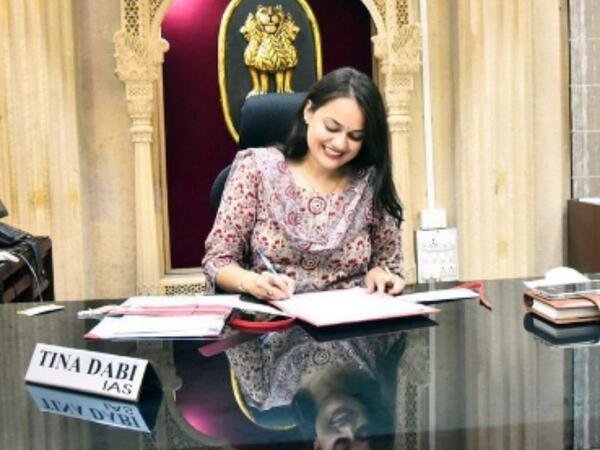
The backbone of the Indian government’s administrative system is primarily civil servants and is one of the most respected jobs in India.
Everything needs civil officials, from implementing policies to running the organs daily. Because of this, the value of city officials cannot be overstated, and the public should treat them with respect.
The Indian Administrative Service (IAS) employs numerous public workers and is one of India’s highest-ranking organisations.
One must participate in the Civil Services Examination held by the Union Public Service Commission (UPSC) if one wants to work as a civil servant in India.
The test is divided into the preliminary, the main, and the interview.
- There will be multiple-choice questions in the preliminary exam.
- Nine papers comprise the main test, comprising an essay and a language paper.
- A panel of expert interviews to evaluate the applicant’s personality, leadership potential, and communication ability.
The Indian Administrative Service (IAS), Indian Police Service (IPS), and Indian Revenue Service (IRS), among others, are a few of those for which one may apply through this exam.
To ace the exam, conducting in-depth study sessions and keeping up with current happenings and events is crucial.
| Civil Service Positions | Salary Range (per year) | Certification Required | Time to Graduate |
| Indian Administrative Service (IAS) | INR 56100 – INR 250000 | Bachelor’s Degree | 4-5 years |
| Indian Police Service (IPS) | INR 56100 – INR 250000 | Bachelor’s Degree | 4-5 years |
| Indian Foreign Service (IFS) | INR 56100 – INR 250000 | Bachelor’s Degree | 4-5 years |
| Indian Revenue Service (IRS) | INR 56100 – INR 250000 | Bachelor’s Degree | 4-5 years |
| Indian Audit and Accounts Service (IAAS) | INR 56100 – INR 250000 | Bachelor’s Degree | 4-5 years |
Scientists And Researchers – Top 10 respected jobs in India

Usually, a Master’s degree in a scientific field—which takes 2-3 years to complete—is needed for the research scientist position.
On the other hand, a senior research scientist normally has a PhD, which takes 5-7 years to accomplish in a field of science.
A PhD and years of research expertise are also necessary for a principal scientist, which typically takes 8 to 10 years.
According to their job title, amount of education, and experience, scientists and researchers in India can make different wages, as shown in the table.
A primary scientist with a PhD and significant research experience can earn as frequently as INR 2,276,696 yearly, compared to a research scientist with a Master’s degree who is likely to make an average of INR 669,936.
Postdoctoral researchers normally hold a PhD and have 5-7 years of expertise in their profession, whereas research associates typically earn a Bachelor’s or Master’s degree in a scientific discipline that takes 4-5 years to finish.
In general, a career in science and research in India has the potential to be monetarily profitable, although the top levels of the profession necessitate a sizable investment in education and experience.
| Job Title | Average Annual Salary | Education/Certification Needed | Time to Graduate |
| Research Scientist | INR 669,936 | Master’s degree in a scientific field | 2-3 years |
| Senior Research Scientist | INR 1,458,652 | PhD in a scientific field | 5-7 years |
| Principal Scientist | INR 2,276,696 | PhD in a scientific field and extensive research experience | 8-10 years |
| Research Associate | INR 361,954 | Bachelor’s or Master’s degree in a scientific field | 4-5 years |
| Postdoctoral Researcher | INR 840,000 | PhD in a scientific field | 5-7 years |
Engineers

Engineers are in charge of planning and constructing the infrastructure that serves as the backbone of contemporary society.
Engineers generally receive respect from society because they use the tools at their disposal to solve issues and instigate programs to enhance the lives of individuals. India now has a vibrant engineering sector and some of the most cutting-edge engineering companies.
One must finish their 10+2 education in India with a focus on math and science if they want to pursue a career in engineering. After this, They can pursue a bachelor’s degree in engineering from a reputable university.
Several colleges and universities have entrance tests like JEE (Joint Entrance Exam) and GATE (Graduate Aptitude Test in Engineering) for admission to engineering programs.
You must perform successfully in these exams to get a seat in a reputable institute. Students can pursue a master’s degree in engineering after earning their bachelor’s degree, which can improve their employment chances.
| Engineering Field | Average Salary | Certification Needed | Time to Graduate |
| Mechanical Engineering | INR 427,000 per year | Bachelor’s Degree | 4 years |
| Electrical Engineering | INR 461,000 per year | Bachelor’s Degree | 4 years |
| Civil Engineering | INR 362,000 per year | Bachelor’s Degree | 4 years |
| Computer Science Engineering | INR 452,000 per year | Bachelor’s Degree | 4 years |
| Chemical Engineering | INR 438,000 per year | Bachelor’s Degree | 4 years |
| Biomedical Engineering | INR 437,000 per year | Bachelor’s or Master’s Degree | 4 to 6 years |
| Aerospace Engineering | INR 684,000 per year | Bachelor’s or Master’s Degree | 4 to 6 years |
Lawyers

Indian lawyers work hard to defend the rule of law and guarantee that justice is always delivered, identical to their international counterparts.
Lawyers in India typically have heavy workloads: they must represent their clients in court, understand the law, give legal counsel, etc.
Lawyers frequently come up in talks regarding the most prestigious professions in India as a result.
In India, you must first obtain a Bachelor of Laws (LLB) degree from an accredited university or college in order to practice law.
The three-year LLB curriculum covers a variety of legal topics, including business, criminal, and the law of constitutionality.
To get licensed to practice law, you must pass the Bar Council of India examination after earning your LLB.
For specialized roles or advanced positions, many law offices and governmental institutions additionally need a master’s degree in law (LLM).
| Job Title | Average Salary (per annum) | Certification Required | Time to Graduate |
| Junior Lawyer | INR 3-4 lakhs | LLB degree | 3-5 years |
| Senior Lawyer | INR 10-12 lakhs | LLB degree, Bar Council of India registration, and experience | 5-7 years |
| Corporate Lawyer | INR 8-10 lakhs | LLB degree, Bar Council of India registration, and specialization in corporate law | 5-7 years |
| Government Lawyer | INR 5-6 lakhs | LLB degree and Bar Council of India registration | 3-5 years |
| Legal Advisor | INR 6-8 lakhs | LLB degree and Bar Council of India registration | 3-5 years |
Armed Forces Personnel
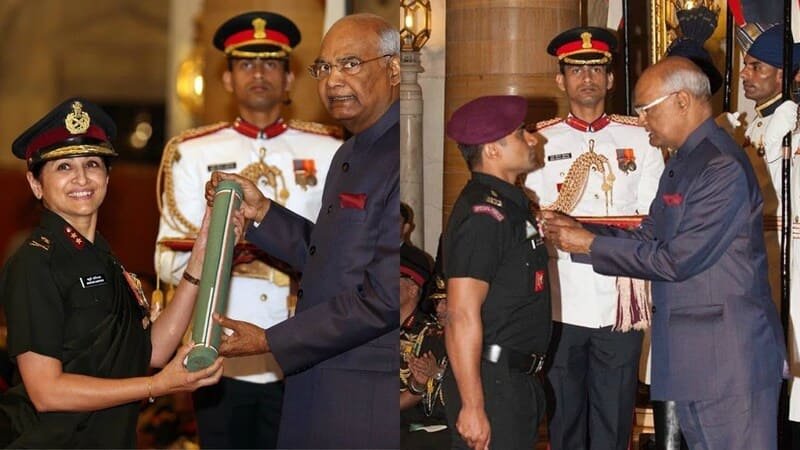
India has fought in numerous conflicts during its history, which explains why members of military personnel frequently enjoy high social standing. It is considered as one of the most respected jobs in india.
Those who serve in the Indian Armed Forces deserve everyone’s admiration for their dedication to defending the nation’s borders and its residents.
One must first meet the eligibility standards, which involve being an Indian citizen and meeting the age, educational, and physical fitness demands, to join the Armed Forces of India.
The first stage is to take and pass an entrance exam into a program like the National Defense Academy (NDA) or Combined Defense Services (CDS). The next step is to pass the Service Selection Board (SSB) interview, which evaluates the applicant’s mental and physical health and other qualities.
When candidates are chosen, they train at the right academy before being commissioned as officers within the Indian Army, Navy, or Air Force.
| Job Title | Average Annual Salary | Certification Needed | Time to Graduate |
| Indian Army Officer | INR 6-12 lakh | NDA or CDSE Examination | 3-4 years |
| Indian Air Force Officer | INR 8-12 lakh | AFCAT or CDSE Examination | 3-4 years |
| Indian Navy Officer | INR 8-12 lakh | NDA or CDSE Examination | 3-4 years |
| Indian Coast Guard Officer | INR 7-10 lakh | Bachelor’s Degree | 3-4 years |
| Border Security Force Personnel | INR 4-8 lakh | SSC Examination | 1-2 years |
| Central Reserve Police Force Personnel | INR 3-6 lakh | SSC Examination | 1-2 years |
| Indo-Tibetan Border Police Force Personnel | INR 4-8 lakh | SSC Examination | 1-2 years |
Police Officers
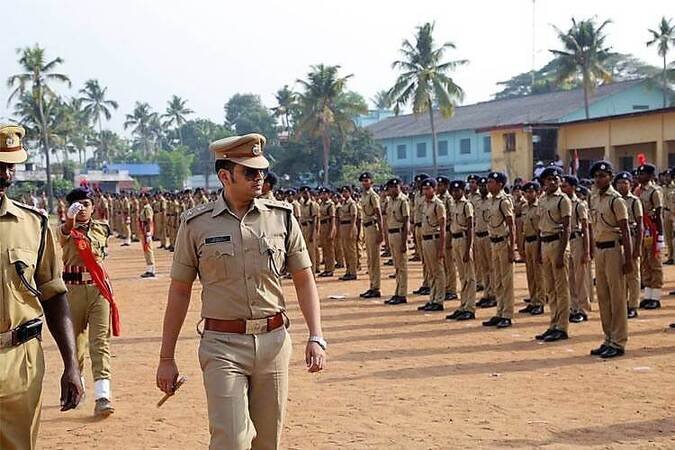
Police officers’ duties include upholding the law and ensuring the public’s safety. Police officers gain the community’s admiration as they put great effort into stopping crime and catching offenders.
India has a combination of educational requirements, physical requirements, and exams to become a police officer. An outline of the procedure is given below:
To begin with, one must earn a minimum passing grade in their 10+2 schooling. They must next appear for the Common Entrance Exam that the relevant state police department administers.
The physical test, which includes a 100-meter sprint, a long jump, and other physical tasks, is given to candidates who pass the written examination.
The final step is a face-to-face interview wherein the candidate’s interpersonal abilities and general personality are assessed.
Applicants would be sent to the police academy for training after completing these procedures before being assigned as police officers.
| Rank | Average Monthly Salary (INR) | Required Certification | Education |
| Constable | 23,000-30,000 | 10+2 pass or equivalent | 10+2 pass or equivalent |
| Head Constable | 45,000-50,000 | 10+2 pass or equivalent | 10+2 pass or equivalent |
| Assistant Sub Inspector | 50,000-60,000 | Graduation in any discipline | Graduation in any discipline |
| Sub Inspector | 55,000-65,000 | Graduation in any discipline | Graduation in any discipline |
| Inspector | 70,000-75,000 | Graduation in any discipline | Graduation in any discipline |
| Superintendent | 78,000-1,20,000 | Graduation in any discipline | Graduation in any discipline |
| Deputy | 1,20,000-2,00,000 | Graduation in any discipline | Graduation in any discipline |
| Commissioner | 2,00,000-2,50,000 | Graduation in any discipline | Graduation in any discipline |
Government Officials
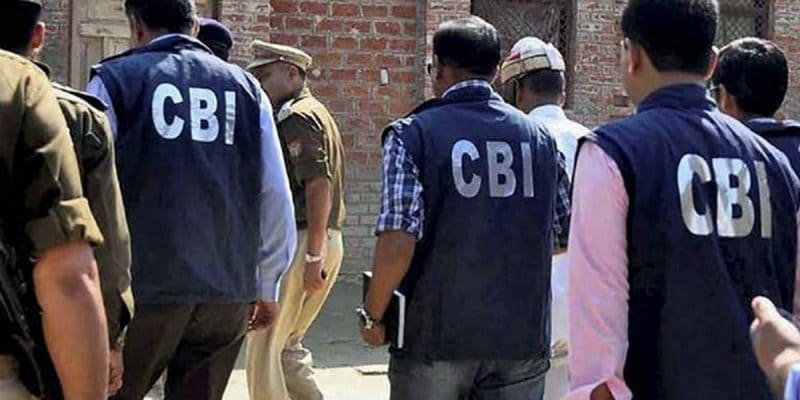
Government officials, appointed to positions of authority, implement projects and programs to the best of their abilities. Many Indians praise government officials for their efforts to enhance citizen well-being.
To work for the government of India, you must pass the Union Public Service Commission’s (UPSC) Civil Services Examination.
Three stages of the exam—the preliminary, main, and interview—that assess your knowledge, aptitude, and decision-making abilities are used to administer it.
General Studies, aptitude, and an optional subject are only a few of the subjects included on the test.
You need a solid grasp of current events, general knowledge, and your selected optional course to be well-prepared for the exam.
You may apply for some government services after passing the exam, including the Indian Administrative Service, Indian Foreign Service, and Indian Police Service, along with many others.
| Job Title | Average Salary (per annum) | Education/Qualification Required | Years of Experience Required |
| IAS Officer | INR 5,00,000 to INR 12,00,000 | Bachelor’s Degree | N/A |
| IPS Officer | INR 5,00,000 to INR 12,00,000 | Bachelor’s Degree | N/A |
| IRS Officer | INR 5,00,000 to INR 12,00,000 | Bachelor’s Degree | N/A |
| State Public Service Commission Officer | INR 3,00,000 to INR 6,00,000 | Bachelor’s Degree | N/A |
| Municipal Commissioner | INR 2,00,000 to INR 5,00,000 | Bachelor’s Degree | N/A |
| District Collector | INR 2,00,000 to INR 5,00,000 | Bachelor’s Degree | N/A |
| State Revenue Service Officer | INR 3,00,000 to INR 6,00,000 | Bachelor’s Degree | N/A |
| Government Teacher | INR 5,00,000 to INR 10,00,000 | Bachelor’s Degree | 2-5 years |
Chartered Accountants
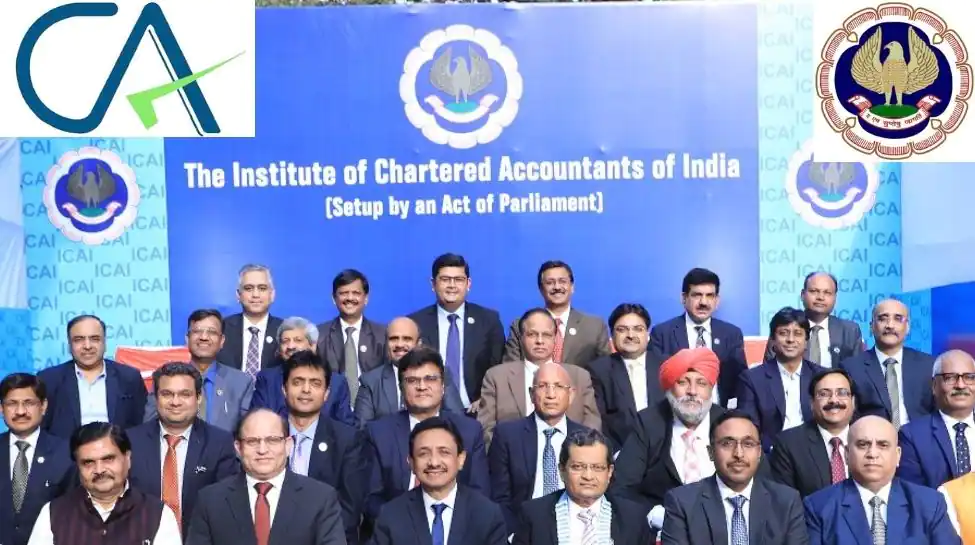
Chartered accountants often excel in accounting and finance, making participation in various economic activities essential.
Chartered accountants assist clients in making informed choices by utilising their financial management expertise and personal experiences to provide guidance. It is one of most respected jobs in india.
Many Indians acknowledge the contribution of chartered accountants to economic prosperity and show appreciation for them.
Becoming a Chartered Accountant (CA) is a rigorous and demanding procedure in India. The Foundation Course, Intermediate Course, and Final Course have to be completed before one may register via the Institute of Chartered Accountants of India (ICAI).
In addition, a 3-year program of practical training under a licensed CA is required. Students must pass several tests throughout the course with at least a 50% grade.
After passing the final test, including practical training, one can become a Chartered Accountant and apply for membership through ICAI.
| Job Title | Average Salary (per annum) | Education/Qualification Required | Experience Required |
| Chartered Accountant (CA) | INR 7,00,000 to INR 20,00,000 | Chartered Accountancy (CA) course | 2-3 years |
| Chief Financial Officer (CFO) | INR 15,00,000 to INR 60,00,000 | Chartered Accountancy (CA) course | 7-10 years |
| Financial Manager | INR 5,00,000 to INR 15,00,000 | Chartered Accountancy (CA) course | 2-5 years |
| Auditor | INR 3,00,000 to INR 10,00,000 | Chartered Accountancy (CA) course | N/A |
| Financial Analyst | INR 3,00,000 to INR 8,00,000 | Chartered Accountancy (CA) course | N/A |
| Investment Banker | INR 10,00,000 to INR 25,00,000 | Chartered Accountancy (CA) course | 2-5 years |
| Cost Accountant | INR 3,00,000 to INR 10,00,000 | Cost Accounting course | N/A |
| Forensic Accountant | INR 5,00,000 to INR 15,00,000 | Chartered Accountancy (CA) course | N/A |
FAQ’s
In India, which profession is most renowned?
India’s Most Reputable Jobs: Civil Servant (IAS/ IPS/ IFS/ IRS) The Civil Services have arguably gained more respect and esteem than any other service. Government officials in India most often look up to civil servants, making it one of the most prestigious careers there.
What profession is admired the most?
The most revered professions are those of doctors, scientists, and farmers. Politicians and reality TV personalities garnered the least regard. Care for others, reliability, and contribution to society are the three most important qualities that define a reputable work.
What position has the most power in India?
Cabinet Secretary: The Cabinet Secretary is the senior civil servant and highest-ranking IAS official within the Indian government.


